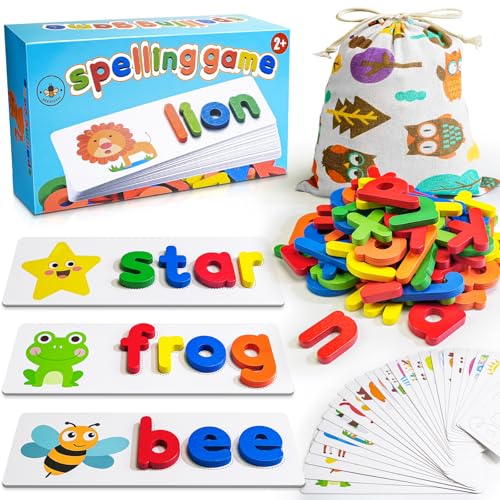Your child’s development is shaped by both genetics and environment, with parents playing a key role. While innate traits like personality and intelligence come from genetics, how you nurture, guide, and create a supportive environment influences how these traits are expressed and developed. Your parenting style can encourage strengths and help child navigate challenges. To understand the full picture of how much influence you really have, keep exploring how nurture and nature work together.
Key Takeaways
- Genetics provide innate traits like personality and intelligence, establishing a developmental foundation.
- Parenting style influences how genetic predispositions are expressed and nurtured over time.
- Environment and encouragement significantly shape the manifestation of innate talents and behaviors.
- Supportive parenting can enhance natural abilities, while neglect may hinder their development.
- The interplay of genetics and nurturing determines a child’s overall growth and potential.

The debate over how much parents shape a child’s development has persisted for decades, with some arguing that genetics play the dominant role while others believe environment and upbringing are key. When it comes to genetics, you might wonder how much your child’s inherent traits influence their personality, intelligence, or behavior. Genetic predispositions can set certain potentials or tendencies, but they don’t determine everything. For example, a child may have a natural aptitude for music or math, but whether they develop those skills depends heavily on the environment and encouragement they receive. Your parenting style plays a vital role here. If you foster curiosity and provide opportunities for growth, you can help turn genetic predispositions into real abilities. Conversely, if you dismiss or neglect these traits, they might never fully develop, regardless of your child’s innate potential.
Your approach to parenting—whether authoritative, permissive, or strict—can profoundly shape how these genetic tendencies manifest. An authoritative style, which combines warmth with firm boundaries, often encourages children to explore their interests confidently, nurturing their natural talents. On the other hand, a permissive style might allow a child’s predispositions to flourish without guidance, but it can also lead to a lack of discipline or direction. Conversely, overly strict or neglectful parenting might suppress a child’s innate abilities, making it harder for them to reach their full potential. Keep in mind, genetics provide a foundation, but your interactions and responses influence how those traits develop over time.
Parenting style shapes how genetic traits develop and manifest over time.
It’s essential to recognize that genetics and parenting are intertwined rather than separate forces. You can’t change your child’s genetic makeup, but your parenting style can either amplify or diminish their innate qualities. For instance, if your child shows signs of leadership, your support and encouragement can help them develop those qualities more fully. If they are naturally anxious, your response to their feelings can either help them build resilience or reinforce their fears. Understanding that genetics provide a starting point helps you appreciate the importance of your role; your nurturing environment and consistent parenting approach shape how your child’s inherent traits will evolve into skills, habits, and personality characteristics.
Ultimately, while genetics set certain parameters, your parenting style acts as a powerful tool in guiding your child’s development. You influence how genetic predispositions express themselves, shaping everything from emotional resilience to social skills. By being mindful of your approach, you can help your child navigate their innate tendencies and foster growth in a way that aligns with their true potential.

Child Development and Personality
As an affiliate, we earn on qualifying purchases.
As an affiliate, we earn on qualifying purchases.
Frequently Asked Questions
Can Environmental Factors Outweigh Genetic Influences in Child Development?
You might wonder if environmental factors can outweigh genetic predispositions in child development. While genetics provide a foundation, environmental impact plays a vital role in shaping your child’s skills and behaviors. Positive surroundings, education, and experiences can considerably influence development, sometimes even overcoming genetic tendencies. So, in many cases, a nurturing environment can have a stronger effect than inherited traits, highlighting the importance of your role in shaping your child’s future.
How Do Cultural Differences Impact the Nature Versus Nurture Debate?
You see that cultural differences shape how children develop by influencing their cultural identity and social norms. These factors guide behaviors, beliefs, and values, impacting whether traits are viewed as innate or learned. You realize that in some cultures, social norms emphasize independence, while others prioritize community, illustrating how cultural context interacts with nature and nurture to shape a child’s development uniquely across societies.
What Role Does Peer Influence Play Compared to Parental Impact?
You might be surprised, but peer influence often shapes your behavior almost as much as your parents do. Peer pressure and friendship influence can sway your choices, habits, and even values, sometimes more intensely than parental impact. When you’re with friends, you’re likely to adopt their attitudes and actions, especially during adolescence. So, while parents set a foundation, peer influence can considerably steer your development in unexpected ways.
Are There Critical Periods When Nurture Has a Greater Effect?
You should know that during critical windows and developmental phases, nurture has a stronger impact. These periods are times when your child’s brain is especially receptive to environmental influences, like learning language or social skills. If you provide positive experiences during these critical windows, you can profoundly shape their growth. Missing these phases might limit developmental potential, making it essential for you to support your child’s needs during these sensitive times.
How Do Modern Technologies Influence Child Development Beyond Parental Control?
Think of modern technology as a double-edged sword shaping your child’s world. You see, digital play and screen time can boost creativity and learning, but too much can drown out real-world interactions. Your child’s development now depends on how you guide their tech use—setting boundaries, encouraging balance—so they can harness these tools for growth while avoiding potential pitfalls. Your mindful approach steers their digital journey wisely.

The Practical Guide to Parenting Autistic Children: Effective Strategies for ASD Behavior Management, Social Communication, and Sensory Processing to Support Your Child’s Success on the Spectrum
As an affiliate, we earn on qualifying purchases.
As an affiliate, we earn on qualifying purchases.
Conclusion
As a parent, you play a powerful role in shaping your child’s future. Did you know that genetics account for about 50% of personality traits, while environment influences the rest? This means your daily interactions, encouragement, and guidance can considerably impact your child’s development. Remember, your involvement isn’t just background noise—it’s the foundation that helps your child grow into their best self. Your influence is both profound and ongoing, shaping who they become every day.

BEESTECH Alphabet ABC Learning Educational Toys for 3 4 5 Years Old Boys Girls, Wooden Puzzle Flash Cards Preschool Activity Letter Matching Games for Kids Toddlers
Wonderful Learning Toys for Toddlers 3, 4 Years Old: Toddlers just need to place the right wooden letters…
As an affiliate, we earn on qualifying purchases.
As an affiliate, we earn on qualifying purchases.

How to Parent Children with ADHD: 48 Techniques & Strategies to Understand and Support Your Neurodivergent Child. Manage and Improve Your Kid’s Emotional Regulation, Focus, and Self-Control
As an affiliate, we earn on qualifying purchases.
As an affiliate, we earn on qualifying purchases.









